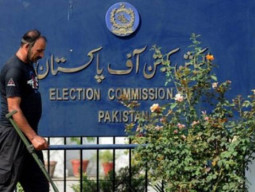
The federal government on Monday sought provinces’ cooperation to catch big landlords who evaded taxes by declaring agriculture as the source of their income, after it came to light that more than 161,000 people declared Rs79 billion agriculture income in federal tax returns.
The move comes as the government seeks to find new avenues to enhance the revenues and also looks for means to sustain the inflows of foreign remittances – the two areas that are critical to avoid any fiscal or balance of payment crises.
In a related development, the government accepted money service bureaus and exchange companies on Monday as “legal source” of transferring foreign remittances for claiming income tax exemption and withdrew dozens of tax recovery cases.
The Federal Board of Revenue (FBR) issued a circular for the withdrawal of cases for the recovery of up to 35% income tax on suspicions of evasions, which were filed because the foreign remittances had been received through exchange companies and money service providers.
Under the Constitution, income from agriculture is a provincial subject – a lacuna that almost every influential landlord and industrialists exploits to evade taxes by claiming income from land. The Income Tax Ordinance prescribes that agricultural income will be exempted from tax only if the provincial income tax was paid on it.
FBR Chairman Dr Mohammad Ashfaq Ahmad has written letters to four provincial finance ministers, seeking their support to plug a loophole that is deliberately left in the Constitution to appease the landlords.
The share of agriculture in the national economy is about one-fifth, but its share in the total revenues is less than 1%, indicating huge tax evasion in the sector. In tax year of 2020, a total of 161,069 filers countrywide declared Rs79 billion income from the agriculture source and claimed tax exemption.
In tax year of 2020, Dr Ahmad wrote in a letter to Punjab Finance Minister Hashim Jawan Bakhat, about 128,550 people of Punjab declared Rs51.4 billion in agriculture income – exempted from the federal income tax. “I suspect that a bulk of such income has not discharged the provincial income tax liability.”
According to the FBR, nearly 25,000 landlords from Sindh claimed Rs23.2 billion income exempted from the federal income tax. From K-P, 6,140 agriculturists claimed Rs2.7 billion federal tax-free income and from Balochistan over 1,500 declared Rs1.5 billion federal income-tax exempted income.
In the spirit of cooperation to increase national revenues, it is offered that the FBR could issue system-generated notices to taxpayers, who declare agricultural income in the federal income tax returns, to duly discharge their tax liabilities with the provinces, the FBR chairman further wrote.
The FBR would issue tax notices on the basis of provincial agriculture income tax law like the Punjab Agriculture Income Tax Act of 1997 and the Sindh Land Tax and Agriculture Income Tax Ordinance, 2000.
The rates of Punjab agriculture tax are lower than the rates for the salaried class taxpayers. Couple of years ago, Punjab was collecting hardly Rs2 billion annually on agriculture income tax, which does not commensurate with the income declared in the federal tax returns.
Dr Ashfaq Ahmad wrote that cooperation from the FBR was extended in the interest of national revenues to ensure that the persons earning agricultural income might pay due tax to the provinces and that no income went untaxed by both the FBR and the provincial governments.
Finance Minister Shaukat Tarin had committed to the International Monetary Fund (IMF) that he would depict a healthy growth in revenues during the first quarter of the current fiscal year to prove his point that this year’s Rs5.829 trillion tax target was achievable without additional new taxes.
In 2013, the FBR introduced an amendment to Section 111 of the Income Tax Ordinance 2001. The amendment was aimed at cracking down on those who evaded income tax by hiding behind agriculture income. However, the FBR did not take action against the landlords who claimed tax exemption on false statements that they had paid their due taxes to their respective provinces.
Remittances
The FBR chairman has offered to coordinate a technical level meeting to address this issue and to curb tax evasion in national interest. The FBR also issued a circular on Monday to end a legal row to keep the flows of the foreign remittances uninterrupted.
Of late, the FBR has received representations, indicating that the letter of the tax law, SBP regulations, and the case law declared over time, stand at opposite poles when it comes to taxation or non-taxation of foreign remittances.
This has resulted in the initiation of avoidable tax proceedings, creation of unsustainable tax demand and additional burden of taxpayers, according to the circular,” “All cases of claim of foreign remittances be disposed of by according lenient interpretation to the conditions stipulated in section 111(4) of the Income Tax Ordinance, 2001” reads the circular.
Moreover, in order to win the trust of the taxpayers and spare the public resources for more productive use elsewhere, all departmental appeals filed on the stricto sensu interpretation of the law, be withdrawn immediately and no further appeals be filed if on all fours of this clarification”, the circular adds. “All circulars and instructions issued on the matter previously issued stand rescinded.”
The State Bank of Pakistan (SBP) expects more than $31 billion in remittances this fiscal year, which is very crucial to avoid balance of payments crisis as imports have started rising to around $5.5 billion a month.
The tax-free status of the remittances is ensured under Section 111 (4) of the income tax law, if four conditions are implemented: the amount is in foreign exchange, the amount is remitted into Pakistan through normal banking channels, the amount is encashed by a scheduled bank and a certificate of encashment is issues by the bank concerned.
Until 2015, there was no upper limit to the income tax exemption under Section 111 (4) of the Income Tax Ordinance 2001. However, a limit of Rs10 million was brought in 2018, which was later reduced to Rs5 million in 2019.
“A controversy has loomed for quite some time as innovations in banking, money transfer mechanisms and development of new products for cross-border transactions have outflanked the letter of the law as now money services business, exchange companies and money transfer operators perform almost identical to those scheduled banks”.
The Inland Revenue Service field formations had refused concessions to foreign remittances transferred through exchange companies and money transfer operators, relying on the appellate tribunal inland revenue’s judgment of 2013.
The SBP has held that money services business, money transfer operators and exchange companies are “equated with scheduled banks”. The foreign exchange ought to originate overseas, must reach and be surrendered to the SBP and transaction should leave a banking trail behind. The FBR has now accepted the SBP’s view point.


1732184775-0/BeFunky-collage-(80)1732184775-0-165x106.webp)

1731933289-0/BeFunky-collage-(68)1731933289-0-165x106.webp)



1732179298-0/BeFunk_§_]__-(23)1732179298-0.jpg)

1732181665-0/Express-Tribune-(9)1732181665-0-270x192.webp)
1732178966-0/BeFunk_§_]__-(22)1732178966-0.jpg)






COMMENTS
Comments are moderated and generally will be posted if they are on-topic and not abusive.
For more information, please see our Comments FAQ